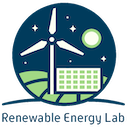Remark: This elective course is offered (with adapted content and requirements) to both Bachelor and Master students.
The students have gained further knowledge of the construction of modern energy systems and basic knowledge in the transfer of tasks from the energy industry in digital form. They will be able to work out and further develop problem solutions for energy systems and present the findings from the energy models.
In order to model, simulate and optimise energy systems taking into account volatile, regenerative energy sources, the generation and consumption systems in a region must be digitally recorded and parameterised so that, among other things, conclusions can be drawn from this system about potentials for energy saving and forecasts of future development. The students will work on the following issues:
Applied Computer Science (B. Sc.), Bio and Process Engineering (M. Sc.), Environmentally Oriented Energy Technology (M. Sc.), Industrial Engineering/Environmental Planning (B. Sc.), Mechanical Engineering (B. Eng.), Renewable Energy (B. Sc.), Sustainable Business and Technology (B. Eng.)

Renewable Energy Lab
Prof. Dr. Henrik te Heesen
Institute for Operations and Technology Management
Environmental Campus Birkenfeld
You are leaving the official website of Trier University of Applied Sciences